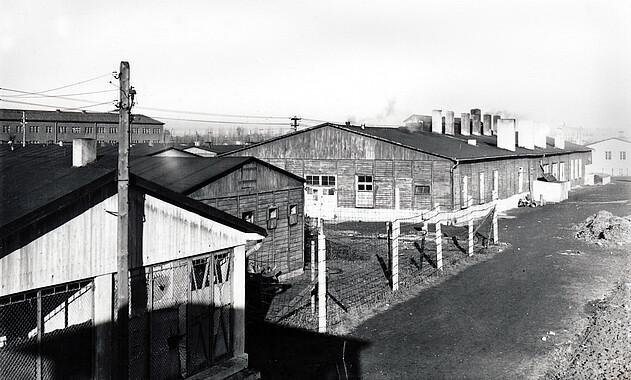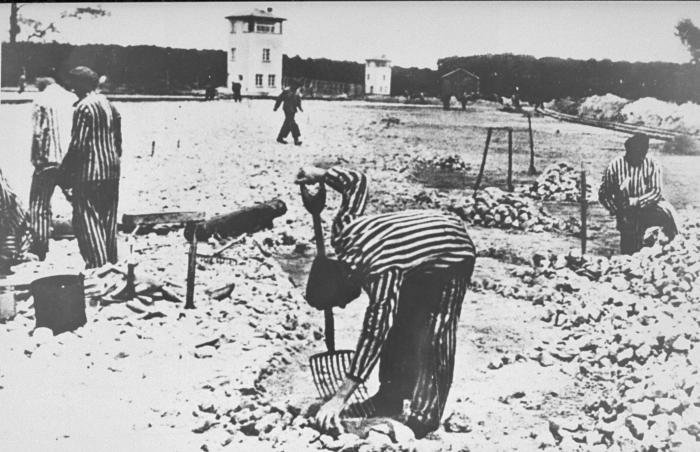Title: Concentration Camps in Germany to Visit Map – A Ancient Guide
In the annals of history, few chapters evoke as much sorrow and reflection as the era of the Holocaust and the concentration camps established across Germany. These sites, steeped in tragedy, stand as stark reminders of the devastating consequences of hatred and intolerance. This article serves as a respectful guide for those seeking to understand the profound impact of these locations. From the infamous camps of Auschwitz and Dachau to lesser-known sites, this historical map offers a pathway to remembrance and education.
Visiting these camps is not merely an act of tourism; it is a pilgrimage—an possibility to confront an unsettling past and honor the memory of millions who suffered unimaginable atrocities. Through guided tours and memorials, visitors can engage with the narratives of resilience, loss, and the enduring spirit of those who endured these horrors. As we navigate this map together, let us approach these sites with reverence, learning from our past to foster a more compassionate future.
Exploring the Historical Significance of Germanys Concentration Camps with Compassionate Reflection
The remnants of Germany’s concentration camps serve as stark reminders of a dark chapter in human history, inviting us to engage in deep reflection on the atrocities that occurred within their walls.As you explore these sites, it is essential to approach them with compassion and respect, honoring the memories of those who suffered. Each location tells a unique story, often overshadowed by the enormity of their tragic past. Visiting these camps allows us to gain insight into the profound impacts of hatred and indifference while encouraging a commitment to preventing history from repeating itself.Here are some key sites that offer valuable lessons and reflections:
- Berlin’s Sachsenhausen Memorial and Museum: Focused on the experience of political prisoners, it provides educational resources and guided tours to help visitors understand the regime’s brutality.
- Dachau Concentration Camp Memorial Site: The first Nazi concentration camp, now a memorial that emphasizes the importance of tolerance and human rights.
- Buchenwald Memorial: Situated near Weimar, it showcases not just the suffering endured but also the stories of resistance among prisoners.
- Terezin (Theresienstadt) Memorial: A town that was turned into a ghetto; its layers of history remind us of the complex experiences of its Jewish inhabitants.
Each camp is not simply a site of sorrow but also a symbol of resilience. To deepen your understanding, consider participating in guided tours that emphasize narratives of survival and hope, frequently enough facilitated by knowledgeable historians. Engaging with personal stories through survivor testimonies and multimedia displays at these locations can foster a greater sense of empathy. There is also value in reflecting on how these historical lessons resonate today, particularly in an era where discrimination and intolerance still exist globally.
| Site | Focus | Location |
|---|---|---|
| Sachsenhausen | Political Prisoners | Oranienburg, Berlin |
| Dachau | First Concentration Camp | Dachau, Bavaria |
| Buchenwald | Resistance Stories | Near Weimar |
| Terezin | Jewish Inhabitants’ Experiences | Czech republic |
These poignant sites, highlighted in Gezify’s travel guide, remind us that through learning and reflection, we can keep alive the lessons of the past, forging a path toward a more conscientious future.
A Thoughtful Guide to Visiting memorial sites: Recommendations for an Informed and Respectful Experience
Visiting memorial sites dedicated to the harrowing history of concentration camps in Germany is a solemn yet crucial endeavor, and it requires thoughtful planning. To ensure your experience is both respectful and enlightening, consider the following recommendations:
- Research Ahead: Understanding the historical context and significance of each site can greatly enhance your visit. Familiarize yourself with the stories of those who suffered and died in these places.
- Visit During Off-Peak Hours: if possible, plan your visit during less busy times. Early mornings or weekdays can provide a quieter atmosphere, allowing for a more reflective experience.
- Observe Silence and Respect: Be mindful of the somber nature of these sites. Maintain a respectful demeanor, and let the heavy atmosphere guide your behavior while exploring.
- Engage with Guides: Manny memorial sites offer guided tours led by knowledgeable individuals who can share deeper insights and stories.These guides can help you navigate your feelings and foster a better understanding of the camps’ historical significance.
- Participate in Reflection Activities: Some memorial sites provide spaces for quiet reflection. Take the time to contemplate the history and honor those who endured unimaginable hardship.
- Adaptive Learning for All Ages: if you’re visiting with youth or children, consider resources designed for younger audiences that can facilitate meaningful discussions about the past.
Below is a brief overview table highlighting key memorial sites associated with concentration camps in Germany for your reference:
| Camp Name | Location | year Established | Noteworthy Features |
|---|---|---|---|
| Buchenwald | Weimar | 1937 | Memorial Museum, Documentation Center |
| Dachau | Dachau | 1933 | Infirmary, Gas Chamber, Holocaust Memorial |
| Sachsenhausen | Oranienburg | 1936 | Exhibitions, Barracks, memorial Stone |
| Flossenbürg | Flossenbürg | 1938 | memorial Site, Visitor Center |
in sum, visiting these sites can be an emotional journey, one that leaves a lasting impact on your understanding of history and humanity. Embracing a mindset focused on respect and education will greatly enrich your experience as you traverse through time and memory at such significant locations across Germany.Gezify encourages visitors to approach these journeys with a heart full of empathy and a mind open to learning.
As we conclude our exploration of the significant historical sites associated with concentration camps in Germany,it is essential to remember the profound impact these places hold. Visiting these locations not only serves as a reminder of the atrocities committed but also honors the resilience of those who suffered. By understanding the past, we can foster compassion and prevent the repetition of history’s darker chapters. We encourage you to approach each site with respect and reflection, allowing their legacies to guide us toward a more empathetic future.
